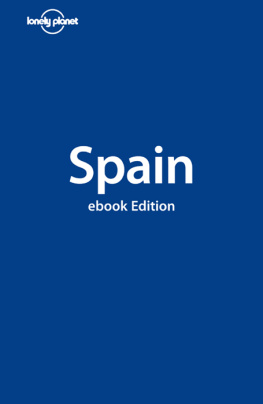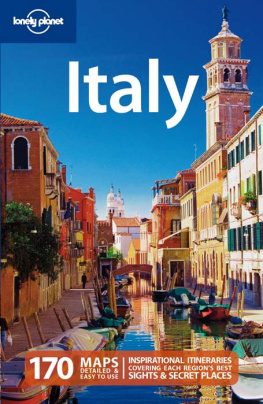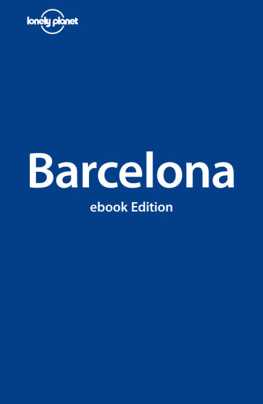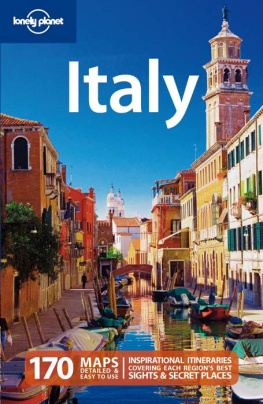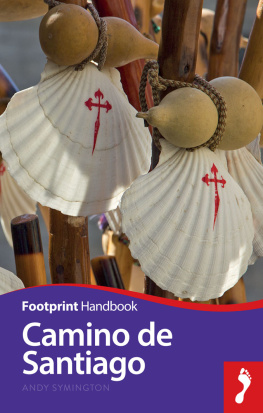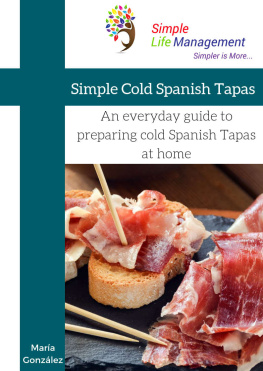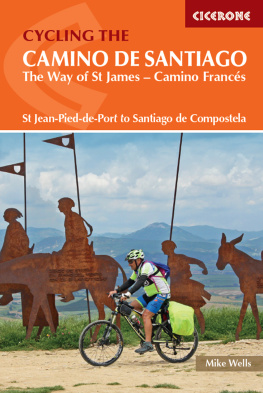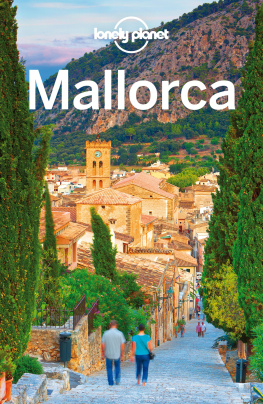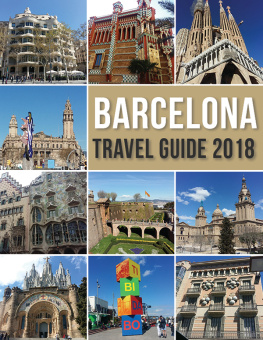Destination Spain
Spain may be a modern European country, but its never lost its whiff of the exotic. The stereotypes by which its known bailaors (flamenco dancers) stamping and swirling in flounces of colour; toreros (bullfighters) flaunting their courage in the bullrings; and beach-lovers soaking up pitchers of sangria over steaming paella just happen to be true. But Spain is also so much more.
For a start, few countries can match the diversity of the Spanish landscape. If mountains give you frisson, Spain has them in abundance. In the north, the Pyrenees and the Picos de Europa are as beautiful as any mountain range on the continent, while the snowcapped Sierra Nevada rises up from the sun-baked plains of Andaluca like an unlikely apparition of the Alps. Stunning coastlines, the horizonless gravitas of the meseta (high tableland of central Spain) and the captivating semideserts of the south combine to create an extraordinary picture.
Everywhere you go, villages of rare and timeless beauty perch on hilltops and huddle in valleys. Vestiges of Old Spain cling to traditions that the rest of Europe lost long ago and to the stone-and-timber architecture that never goes out of style. Spend as long as you can in places such as these. Better still, use them as bases for hiking, skiing and all manner of stirring outdoor pursuits.
A world away, Spains dynamic cities are temples to all thats modern and cool. Madrid, Barcelona, Valencia and Seville have become bywords for that peculiarly Spanish talent for living the good life, and for doing so at full volume and all night. Most cities also promise a daytime feast of exceptional sites, from world-class art galleries to graceful Islamic-era monuments, from barrios (districts) overflowing with medieval charm to zany Gaud flights of fancy.
Fast Facts
Population: 45 million
Area: 504,782 sq km
GDP: 1348 billion (worlds eighth-largest economy)
GDP per head: 19,226
GDP growth: 1.8%
Inflation: 4.6%
Unemployment rate: 9.63%
Average life expectancy: 79.92 years
Highest point in peninsular Spain: Mulhacn (3479m)
Biggest paella: made in Valencia in 1992 in a pan 20m in diameter; it was eaten by 100,000 people
Speaking of feasts, food and wine are what Spaniards really get excited about. Variety is the touchstone of Spanish cooking and every region, nay, every Spanish village seems to have its own speciality. Often the recipes have been intact for centuries; sometimes theyve just emerged from the laboratory. You may experience the best meal ever over tapas in an earthy bar where everyone seems to be shouting, or in the refined surrounds of a Michelin-starred restaurant. Either way, the breadth of culinary experience that awaits you is astonishing.
Fascination also resides in the fact that Spain is a work in progress, a country wrestling with its place in the modern world. Spains rapid rise to become one of Europes most progressive countries remember its only been a democracy for 30 years finds daily expression as Spaniards confront a host of modern problems.
Ask any Spaniard what theyre most concerned about and theyre likely to reply: the economy, of course. Spaniards are struggling: how to buy a house, how to pay the mortgage, how to survive on some of Europes lowest salaries while prices reach parity with the rest of the continent are national obsessions. In this economy, where stellar recent growth has been fuelled by booming construction, the Europewide economic downturn is rocking Spain to its foundations. Immigration, too, is increasingly at the forefront of Spaniards minds.
And then there are those issues with a more local focus. Since Spains Socialist government returned to power with a narrow victory in national polls in March 2008, Spaniards have been watching and hoping that the next four years wont be as bitter as those that preceded them. Although the government and opposition have promised to end the politics of confrontation, the divisive issues that plagued the last legislature remain open wounds and no ones holding their breath.
The raft of social reforms pursued with such zeal by the Socialist government, and opposed with equal fervour by the opposition, are, it seems, here to stay. But with the government promising to make abortion laws more flexible, remove Christian symbols from government ceremonies and open debate on laws allowing a limited form of euthanasia, its hard to see how the two sides can be reconciled. The election of the Archbishop of Madrid, arch-conservative Antonio Mara Rouco Varela, to lead the powerful Spanish Bishops Conference in 2008 suggests that the road ahead will be anything but boring.
Euskadi Ta Askatasuna (ETA; Basque Homeland and Freedom) may be on the decline but, after a nine-month permanent ceasefire, it showed it was still around with the bombing at Madrids Barajas airport on 30 December 2006. Two people died the first deaths attributed to ETA in almost four years and the killing of a former Basque councillor followed during the 2008 election campaign. No more negotiations was the message from both the ruling Socialists and the opposition Partido Popular (Peoples Party). But negotiate they must on at least one front: the Basque regional government has promised a referendum on plans for far-reaching autonomy.
But for all the issues that confront and divide, Spaniards seem intent on staring down the doomsayers and living life in a way that seems to say Crisis? What crisis? The shops are full, Spaniards are travelling more than ever and its often said that the current young generation is the first in a very long while to be truly proud of its country. Spain is all the rage around the world, from its cuisine and celebrity chefs to its architecture and design. The national football team finally shook off the mantle of perennial underachiever by winning the 2008 European Championships, its first major trophy since 1964, and Rafael Nadals epic Wimbledon victory was the first by a Spaniard since 1966. In the aftermath of sporting success, the feel-good factor was palpable in just about every corner of the land and, despite the undoubted problems the country faces, theres a newfound confidence, an overwhelming sense that Spains time is now.
Spains dynamic cities are temples to all thats modern and cool.
Getting Started
Getting the most out of a visit to Spain is partly a matter of timing. If you hope to enjoy the outdoors (walking, skiing, diving and so on), you need to plan around the weather but avoid the crowded seasonal peaks. You may want to be around to witness some of the countrys extraordinary festivals. Some visitors aim for a taste of luxury and gourmet indulgence; in this case it is worth planning which castles to stay in and which avant-garde restaurants to book. Whether its a lazy beach holiday or a strenuous cycle tour youre craving, whatever your budget, anything is possible.
WHEN TO GO
Depending on what youre after, Spain is a year-round destination. The ideal months to visit are May, June and September (plus April and October in the south). At these times you can rely on good to excellent weather pretty much throughout the country, yet avoid the main crush of Spanish and foreign tourists and the sometimes extreme heat. During July and August, temperatures can climb to 45C in inland Andaluca; at this time Madrid is unbearable and almost deserted.
See Climate Charts () for more information.
Winter (from December to February) along the south and southeast Mediterranean coasts is mild. In the height of summer (from June to August), retreat to the northwest, to beaches or high mountains, anywhere to escape excessive heat. You can be sitting outside enjoying a beer in a T-shirt in Granada in February, or rugged up against the cold while trekking the Picos de Europa in July.

